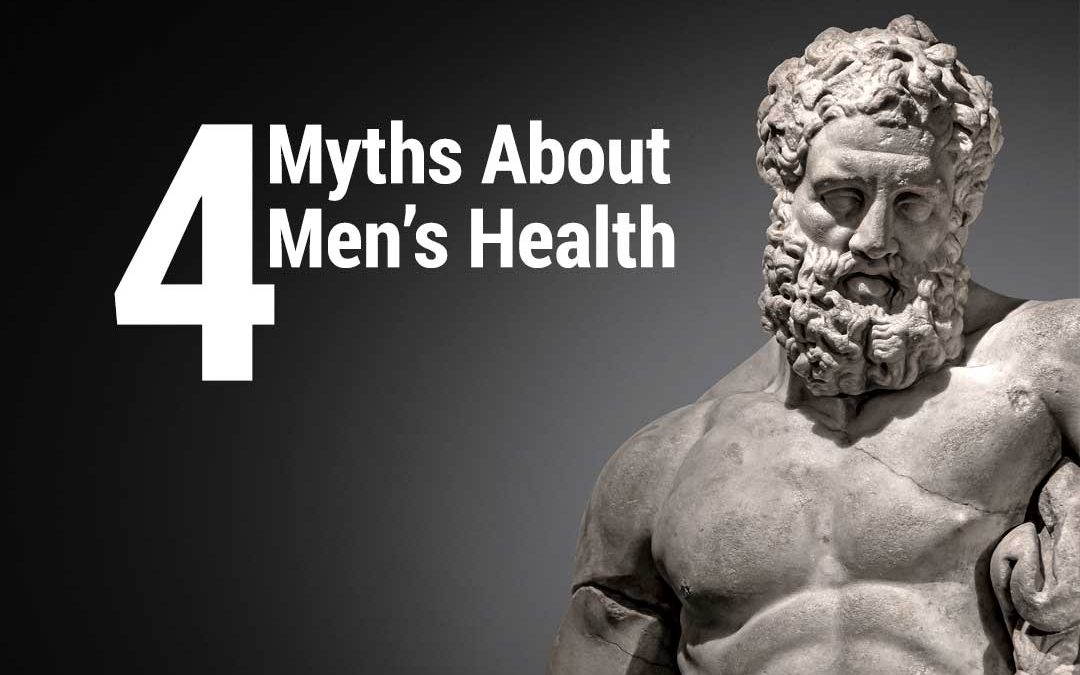In today’s society, men’s health and wellness are often overshadowed by outdated stereotypes and misconceptions. From the belief that seeking help is a sign of weakness to the notion that masculinity means ignoring health concerns, these myths can have serious consequences for men’s well-being. At VITALIZE Natural Medicine, we believe in challenging these myths and empowering men to prioritize their health and wellness. According to a study published in the American Journal of Men’s Health, men are more likely to avoid seeking medical care due to fears of being perceived as weak or vulnerable, as well as concerns about cost and inconvenience. However, this reticence is based on harmful myths and stereotypes that ultimately cost men more in terms of healthcare costs, decrease enjoyment of life, and a shorter lifespan. Let’s consider some common misconceptions surrounding men’s health and provide evidence-based information to encourage men to take control of their health and well-being.
Myth #1: Real Men Don’t Seek Help
One of the most pervasive myths surrounding men’s health is the belief that seeking help is a sign of weakness. In reality, asking for help is a sign of strength and courage. Whether it’s seeking medical advice for a health concern, talking to a therapist about mental health issues, or reaching out to friends and loved ones for support, seeking help is an essential part of taking care of oneself. Moreover, those around you who love and rely on you want and need you to remain healthy for their sake.
Myth #2: Masculinity Means Ignoring Health Concerns
Another common misconception is that being masculine means ignoring health concerns and toughing it out. In truth, ignoring health concerns can lead to serious consequences for both physical and mental well-being. It’s important for men to prioritize their health by scheduling regular check-ups, staying up-to-date on screenings and vaccinations, and seeking medical attention when needed. An ounce of prevention is worth a pound of cure, and what you put off today may only get worse and more debilitating tomorrow.
Myth #3: Men Don’t Experience Mental Health Issues
There’s a harmful stereotype that men are immune to mental health issues or that expressing emotions is a sign of weakness. In reality, mental health affects everyone, regardless of gender. Men may be less likely to seek help for mental health issues due to stigma and societal expectations, but it’s crucial to recognize and address these issues to prevent them from escalating. This is also true for sexual issues that men are often hesitant to consult about with a professional.
Myth #4: Men Should Tough It Out
There’s a cultural expectation for men to “tough it out” and avoid showing vulnerability. While resilience is important, it’s also essential for men to recognize when they need support and to reach out for help when necessary. Ignoring health concerns or toughing it out can lead to more significant problems down the line.
Debunking the Myths: Evidence-Based Insights
- Seeking help is a sign of strength, not weakness. Research shows that men who seek help for health concerns are more likely to experience better outcomes and improved well-being.
- Masculinity is not synonymous with ignoring health concerns. Taking proactive steps to address health issues is a sign of intelligence and responsibility.
- Men experience mental health issues at similar rates to women. It’s important to break down the stigma surrounding mental and sexual health and encourage men to seek support when needed.
- Toughing it out can have negative consequences for health. Ignoring health concerns can lead to delayed diagnosis and treatment, resulting in more severe health problems and increased costs over time.
At VITALIZE Natural Medicine, we’re committed to fostering a culture of openness, awareness, and empowerment in men’s healthcare. We encourage men to challenge misconceptions surrounding masculinity and health, prioritize their well-being, and seek support when needed. By debunking myths and providing evidence-based information, we aim to empower men to take control of their health and lead happier, healthier lives.



